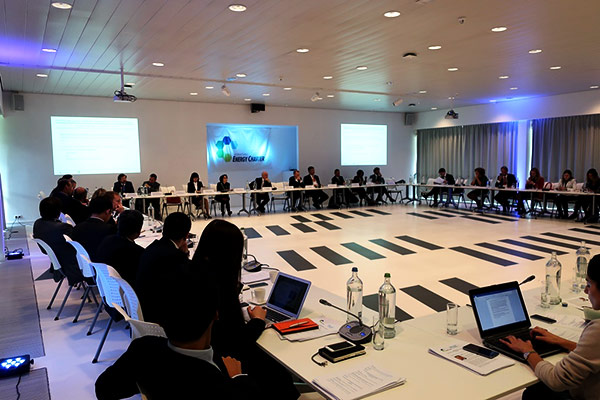News
Wind industry at International Energy Charter: de-risk renewable energy investments

15 September 2017
On 14 September 2017, WindEurope and the Industry Advisory Panel of the International Energy Charter jointly organized an event on “Promoting and De-risking Renewable Energy Investments.”
The event was attended by government representatives, financial and legal institutions and energy companies. Discussions focused on the promotion of investors’ legal and financial certainty in renewable energy projects. Juan Rivier Abbad, Head of Regulation at Iberdola Renovables, explained that investors need revenue stability and visibility in order to make the upfront investment that is needed in a capital-intensive technology such as wind energy. He stressed that long-term revenue visibility and stability allows for lower investment costs and increases global competitiveness.

Ensuring viable business models and revenue streams in the wind energy sector is therefore key to the wind industry, and legal certainty is another central element necessary to the industry development. Avoiding any retroactive changes in the national legal frameworks that might affect revenue stabilization is fundamental, said Heikki Willstedt, Energy Policies and Climate Change Director at Asociación Empresarial Eólica.
On this occasion, WindEurope officially joined the Industry Advisory Panel to represent the wind energy industry in the roundtable discussions of this international forum.
The Energy Charter Treaty provides a multilateral framework for energy cooperation which is unique under international law. It is designed to promote energy security through the operation of more open and competitive energy markets, all while respecting the principles of sustainable development and sovereignty over energy resources. To date, the Treaty has been signed or acceded to by fifty-two states, the European Union and Euratom. The Treaty’s provisions focus on the protection of foreign investments, non-discriminatory conditions for trade, and the resolution of disputes between participating states and – in the case of investments – between investors and host states.
